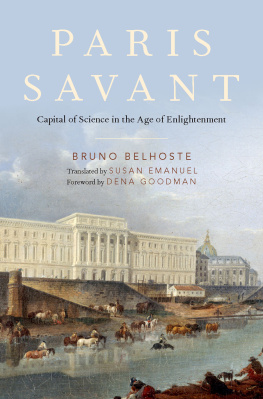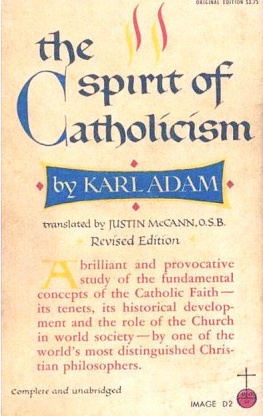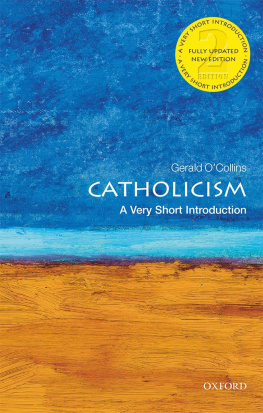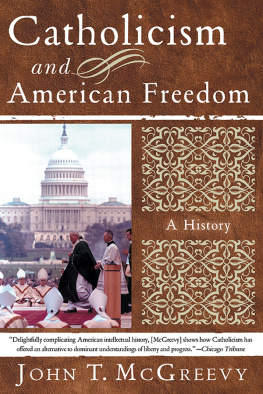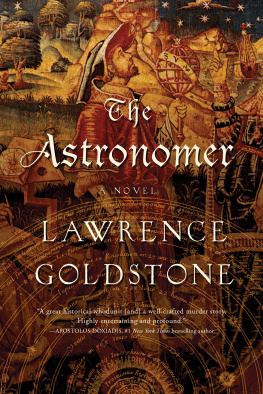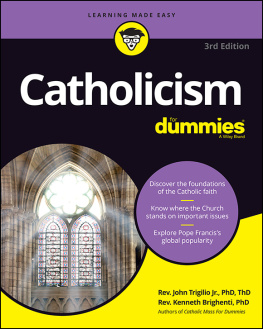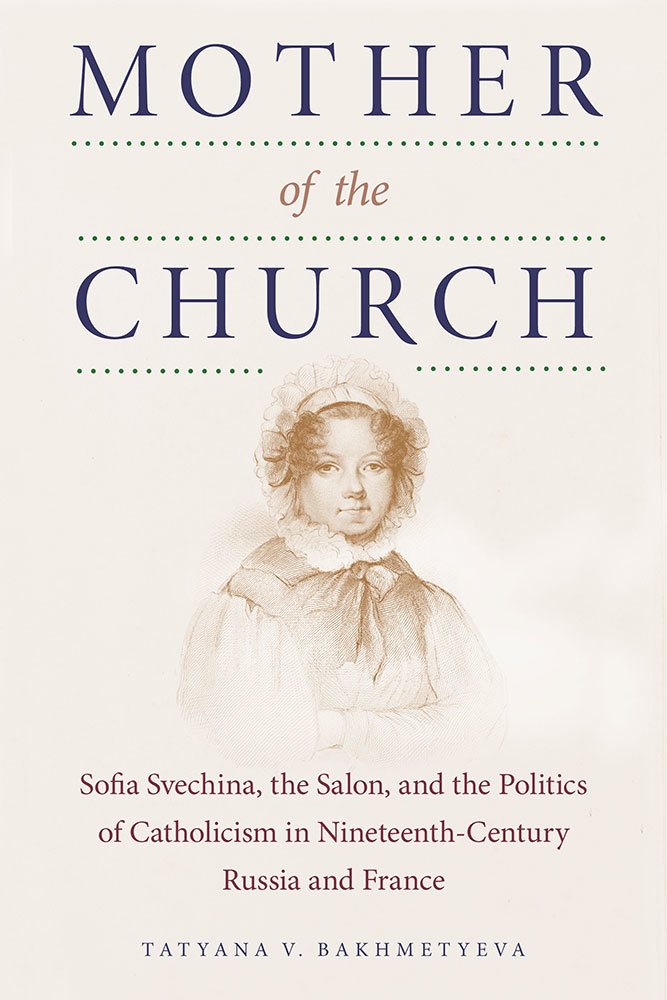Sofia Svechina (17821857) from an engraving by Eugne Leguay (image courtesy of Bibliothque Nationale de France)
Mother
of the
Church
Sofia Svechina, the Salon, and the Politics of Catholicism in Nineteenth-Century Russia and France
Tatyana V. Bakhmetyeva
NIU Press / DeKalb, IL
Northern Illinois University Press, DeKalb 60115
2016 by Northern Illinois University Press
All rights reserved
Printed in the United States of America
25 24 23 22 21 20 19 18 17 16 1 2 3 4 5
978-0-87580-737-9 (paper)
978-1-60909-198-9 (e-book)
Cover design by Shaun Allshouse
Composition by BookComp, Inc.
Library of Congress Cataloging-in-Publication Data
Names: Bakhmetyeva, Tatyana, author.
Title: Mother of the churchSofia Svechina, the salon, and the politics of
Catholicism in nineteenth-century Russia and France / Tatyana V. Bakhmetyeva.
Description: DeKalb : Northern Illinois University Press, 2016. | Includes
bibliographical references and index.
Identifiers: LCCN 2016011180 (print) | LCCN 2016030364 (ebook) | ISBN
9780875807379 (paperback) | ISBN 9781609091989 (ebook)
Subjects: LCSH: Swetchine, Madame (Anne-Sophie), 1782-1857. | Catholic
convertsFranceBiography. | FranceIntellectual life19th century. |
Saint Petersburg (Russia)Intellectual life19th century. |
SalonsFranceHistory19th century. | SalonsRussia
(Federation)Saint PetersburgHistory19th century. | Catholic
ChurchFranceHistory19th century. | BISAC: BIOGRAPHY & AUTOBIOGRAPHY
/ Religious. | HISTORY / Europe / Russia & the Former Soviet Union. |
HISTORY / Europe / France.
Classification: LCC BX4668.S94 B35 2016 (print) | LCC BX4668.S94 (ebook) | DDC
282.092 [B]dc23
LC record available at https://lccn.loc.gov/2016011180
To Stewart, always
Contents
As with any book, this one not only took many years of research but was also shapedand re-shapedthrough many conversations with colleagues and friends; it went through multiple drafts generously read by yet more colleagues and friends who gave feedback and offered ideas; it was completed only because familyand yet more friendsprovided emotional support and created a stimulating and happy social environment. Now, thinking back, I feel that I should have kept a detailed diary, a travel log, in which I noted the name of everyone whom I encountered on this journey and who helped me to complete it. Alas, I kept no such record and have to rely on my memory. The journey has been a long onetoo long, in fact. Please forgive me if I fail to acknowledge your help or advice.
Several institutions and organizations provided financial assistance to this project. The University of Rochester History Departments travel and research grants, the John Tracy Ellis Dissertation Award from the American Catholic Historical Association, and travel grants and a Dissertation Award from the University of Rochesters Susan B. Anthony Institute for Gender, Sexuality, and Womens Studies all helped support several trips to archives in France and Russia. A grant from the Friends of the University of Rochester Libraries funded the purchase of several important sources, making it easier to work at home.
The staff of the University of Rochester Libraries and especially the Interlibrary Loan Department seemed to possess a magical ability to make books and materials appear almost at the moment I ordered them. Friends and colleagues at the University of Rochester History Department were, of course, an inspiration. Among them, I want to single out Jean Pedersen, whose incredibly detailed and helpful notes and suggestions left me in awe of her intellectual generosity.
Abroad, members of the Society of Jesus from the Center for Russian Studies/Slavic Library in Meudon, especially Father Ren Marichal, made my time working in the archives of the center unforgettable. Wonderful food, splendid conversations, and peaceful walks in the park that surrounded the archive gave me much needed respite from lonely hours in the library. Sister Natalie, former curator of the Slavic Library, helped me navigate through the maze of the archive. The monks of the Order of St. Benedict from the Solesmes Abbey shared not only their heavenly music and their enthusiasm for Sofia Svechina but also rare documents from their archives. Sandrine Lacombe from the Archives Nationales sought me out to inform me that the archives had purchased a new collection of documents related to Svechina and allowed me access to these documents even before they were cataloged and processed.
My dissertation advisers, Dorinda Outram and Brenda Meehan, readily and generously shared their truly inexhaustible knowledge, while their patience and support sustained me through the early stages of this journey. When failing health forced Brenda Meehan to step down as my adviser, she remained a true inspiration both professionally and personally until her untimely death. Dorinda Outram took over the advising of this project in its final dissertation stage and then continued to share her insights as I was working on the book.
My anonymous reviewers comments helped me to broaden the narrative both contextually and structurally and encouraged me to push my analysis farther. My editors, Amy Farranto and Nathan Holmes, readilyand patientlyoffered support and guidance. It was a pleasure to work with them and a privilege to publish this book with the Northern Illinois University Press.
Finally, I want to thank my family for their support and patience. My mother, Lyubov Bakhmetyeva, eased the pressure of parenting and running the household. My children, Daria and Sophia, grew up with this project, first getting familiar with it when it was a dissertation, then as it turned into a book. Having to compete with it for my attention, they came to see it as another sibling, and not a very pleasant one. I also want to thank my step-children, Henry and Cea, who readily welcomed me into their lives several years ago, turning what could have been a formidable challenge of building a new family into an easy transition that made the writing process much easier.
But most of all I want to thank my husband, Stewart Weaver, who is my daily inspiration in every aspect of life, including professional. His eloquent and graceful writing style is an ideal that I will never reach. But his love, support, and encouragement make me try nevertheless. His coming into my life enriched it in more ways than he can imagine. It is to him that this book is dedicated, with love.
On September 14, 1857, Parisians passing by Montmartre Cemetery might well have wondered whether they had missed an announcement of the recent death of some dignitary as they watched the graveside gathering of several noted French politicians and intellectuals. Those whose curiosity was sufficiently piqued to ask after the deceased might have heard for the first time the name of Sofia Svechinaor Madame Swetchine as she was known to everyone in the funeral partya Russian migr who had died a few days earlier in her apartment on Rue Saint-Dominique. Once the hostess of a prominent Parisian salon and the center of an impressive orbit of French Catholic intellectuals, Svechina had outlived her fame, and having heard her name, the passersby would most likely have moved on, idle curiosity satisfied. But those who lingered to ask more would have heard, perhaps, a remarkable story.



